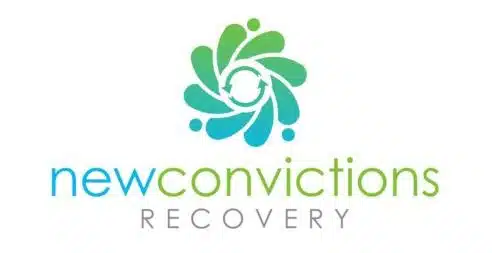Perhaps you have asked yourself this same question in the course of everyday life. It comes as no surprise that as we advance in many different areas in modern society, we also advance in creating innovative ways to experience pleasure; hence, wherever pleasure is found or experienced, so lies the possibility of addiction. The term “addiction” has become a byword in American culture to express one’s desire, love, or satisfaction toward a specific object, thing, or activity; phrases such as “I’m addicted to this” or “this is so addicting” are not signs that something is wrong but rather are synonymous to “I like this thing a lot.” Unfortunately, as the term addiction gets assimilated more into everyday vernacular, so does it lose its original meaning. Therefore, before answering the question “How do I know that I’m addicted?”, I believe it’s important to define what addiction is in the first place.
Addiction can be a hard word to define as many people have attempted to define it over the years. When going to the common dictionary, it is defined as “the state of being enslaved to a habit or practice or to something that is psychologically or physically habit-forming, as narcotics, to such an extent that its cessation causes severe trauma.” (dictionary.com). If you were to look at the term from a more clinical lens, “Addiction is a treatable, chronic medical disease involving complex interactions among brain circuits, genetics, the environment, and an individual’s life experiences. People with addiction use substances or engage in behaviors that become compulsive and often continue despite harmful consequences.” (ASAM, 2019). When taking a glance at some of the prevailing definitions, it is obvious that some of the common themes of addiction are: it gets progressively worse, causes medical and/or psychological issues, involves poor control over use, involves preoccupation or obsession, and using despite negative consequences. It is also important to note that addiction is not likened to a dichotomous on-off switch (meaning either you have it or not); rather, society’s understanding of addiction represents more of a spectrum that can be classified as mild, moderate, or severe. This is helpful because not all addictions are made equal and have the same severity; treatment course is individualized to each person’s needs and specific issues.
Now that we have an understanding of what addiction is, its time to examine the question “How do I know if I’m addicted?” While many screening instruments exist in order to diagnose addictive disorders, I will present a simple 4 question test that one can use to identify if addiction is a problem. This is adapted from the commonly used screening questionnaire CAGE that is used for people suffering from an alcohol use disorder. While the test was originally developed in order to identify problem drinking, its use has many applications across many addictive disorders and can provide a starting point in problem-identification. The acronym CAGE stands for: Cut-down,
Annoyed/Angry, Guilty, and Eye-opener.
The first letter is C which stands for cutting down. The question that is normally asked is “Have you ever felt you needed to Cut down on your drinking?” You can replace “drinking” with any substance or behavior for which you are questioning if you have a problem. This question is designed to show that after multiple uses or engagements with a particular substance or activity, one feels a need to cut back because something does not sit right with the user.
The second letter is A which stands for annoyed/angry. The question that is normally asked is “Have people Annoyed you by criticizing your drinking?” or “Have people become angered by your drinking”. Again, you can replace “drinking” with whatever problem substance or behavior for which you are questioning. This question helps give perspective on how your addictive actions affect those around you; it gives a glimpse to how the outside world perceives your behavior and if it is giving negative critical feedback.
The third letter is G which stands for guilty. The question that is normally asked is “Have you ever felt Guilty about your drinking (or any other substance or problem behavior)?” In answering this question, it gives insight as to how certain activities, behaviors, or substances sit well with the user. If the activity or use in question does not align with the user’s values or sense of morality, this question will invoke an affirmative response.
The last letter is E which stands for Eye-opener. The question that is normally asked is “Have you ever felt you needed a drink first thing in the morning (Eye-opener) to steady your nerves or to get rid of a hangover?” As mentioned earlier, while CAGE was tailored toward alcohol users and this question specifically addresses a common side-effect associated with alcohol use, its application is general enough to encompass other problem substances or behaviors. For example, insert a different drug of choice and replace “hangover” with “withdrawal symptoms”. For behavioral addictions, a way this question can be crafted is “Have you ever felt you needed to engage in (addictive behavior) throughout the day to steady your nerves?” This question is designed to assess level of withdrawal symptoms associated with cessation of activity or reverting to addictive substance/behavior as a coping mechanism for distress of any kind.
In a nutshell, here are the 4 questions to ask yourself:
- Have you ever felt the need to Cut-down your substance use or addictive behavior?
- Have people Annoyed you (or been Angered) by criticizing your substance use or addictive behavior?
- Have you ever felt Guilty about your substance use or addictive behavior?
- Have you ever felt you needed to use a substance or engage in an addictive behavior to steady your nerves (Eye-opener) or alleviate withdrawal symptoms?
After answering the four questions that are tailored to your specific substance or behaviors in question, this is how you can interpret the results. Typically, if one answer is in the affirmative (yes) to one of the questions, it is not usually a cause of concern. Some professionals attach more significance to question 4 (especially if substances are involved) as this can be indicative of withdrawal symptoms. If one answers in the affirmative to 2 or more questions, there is an indication that a problem may be present with said addictive behavior or substance and may necessitate further evaluation. Remember, addiction is classified on a spectrum; just because one is identified as having a potential problem does not mean he or she meets society’s stereotype of what a typical “addict” may be; however, one should not ignore the finding but rather follow up to ensure early interventions are in place so this addictive pattern does not become progressively worse.
At the end of the day, it is up for you to decide whether your problem substance use or behavior is causing issues in your daily life. Your own life bears witness to whether things are working or not; when in doubt, look at the record. Inspirational author and speaker Tony Robbins says it best when he states: “Change happens when the pain of staying the same is greater than the pain of change.” If you or a loved one suspect a potential issue or are in need of help, we at New Convictions Recovery are here to serve you. Feel free to visit us at www.newconvictionsrecovery.com or call 973-963-4656.
Below you will also find a list of more in-depth screening instruments for you to examine to see if you have a potential addiction issue.
Screening Instruments
Drugs- http://www.sbirtoregon.org/wp-content/uploads/DAST-English-pdf.pdf
Porn- https://michaelwalsh.com/admin/resources/resources/pornography-addiction-screening-tool.pdf
Gambling- http://www.ncrg.org/sites/default/files/uploads/docs/monographs/sogs.pdf
Video Games- https://caps.ucsc.edu/pdf/gaming-addiction-screening.pdf
Food- https://www.midss.org/sites/default/files/yale_food_addiction_scale.pdf
*Please note that these tests do not diagnose addiction issues but are for informational and screening purposes only. For a more definitive diagnosis for an addictive disorder, please visit a qualified addiction treatment professional for a formal evaluation. *
References
Dictionary.com. (2020). Addiction. In dictionary.com dictionary. Retrieved May 3, 2020, from https://www.dictionary.com/browse/addiction?s=t
American Society of Addiction Medicine. (2020). Definition of Addiction. Retrieved May 3, 2020, from https://www.asam.org/Quality-Science/definition-of-addiction

